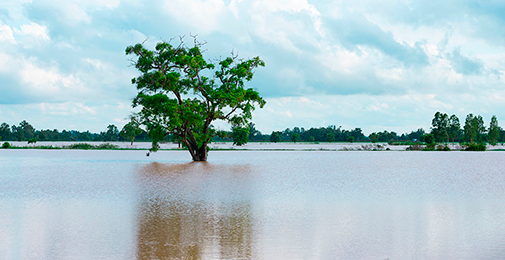
Category
Health & Safety
Floods season: Tips to stay safe
Creation date
26/05/2022
The flood season is just around the corner and as any natural disaster, its damage and dangerousness cannot be overlooked. Remember to always follow all the instructions from the government or local public authorities and keep yourself informed with all details in the event of a flood warning. Here’s a summary of the most important tips provided by the Unites States government during and after a flood. Check them out below:
During a flood:
- Evacuate immediately, if told to evacuate. Never drive around barricades. Local responders use them to safely direct traffic out of flooded areas.
- Contact your healthcare provider if you are sick and need medical attention. Wait for further care instructions and shelter in place, if possible. If you are experiencing a medical emergency, call 9-1-1.
- Listen to EAS, NOAA Weather Radio or local alerting systems for current emergency information and instructions regarding flooding.
- Do not walk, swim or drive through flood waters. Turn Around. Don’t Drown!
- Stay off bridges over fast-moving water. Fast-moving water can wash bridges away without warning.
- Stay inside your car if it is trapped in rapidly moving water. Get on the roof if water is rising inside the car.
- Get to the highest level if trapped in a building. Only get on the roof if necessary and once there signal for help. Do not climb into a closed attic to avoid getting trapped by rising floodwater.
After a flood:
- Pay attention to information and instructions from the authorities for. Return home only when authorities say it is safe.
- Avoid driving except in emergencies.
- Wear heavy work gloves, protective clothing and boots during clean up and use appropriate face coverings or masks if cleaning mold or other debris.
- People with asthma and other lung conditions and/or immune suppression should not enter buildings with indoor water leaks or mold growth that can be seen or smelled. Children should not take part in disaster cleanup work.
- Be aware that snakes and other animals may be in your house.
- Be aware of the risk of electrocution. Do not touch electrical equipment if it is wet or if you are standing in water. Turn off the electricity to prevent electric shock if it is safe to do so.
- Avoid wading in floodwater, which can be contaminated and contain dangerous debris. Underground or downed power lines can also electrically charge the water.
- Use a generator or other gasoline-powered machinery ONLY outdoors and away from windows.
Remember, these tips are just basic action guidelines for the flood season. Please, contact always with the local authorities to be aware of all the emergency plans.
Above all, safety first!
Source: https://www.ready.gov/floods
